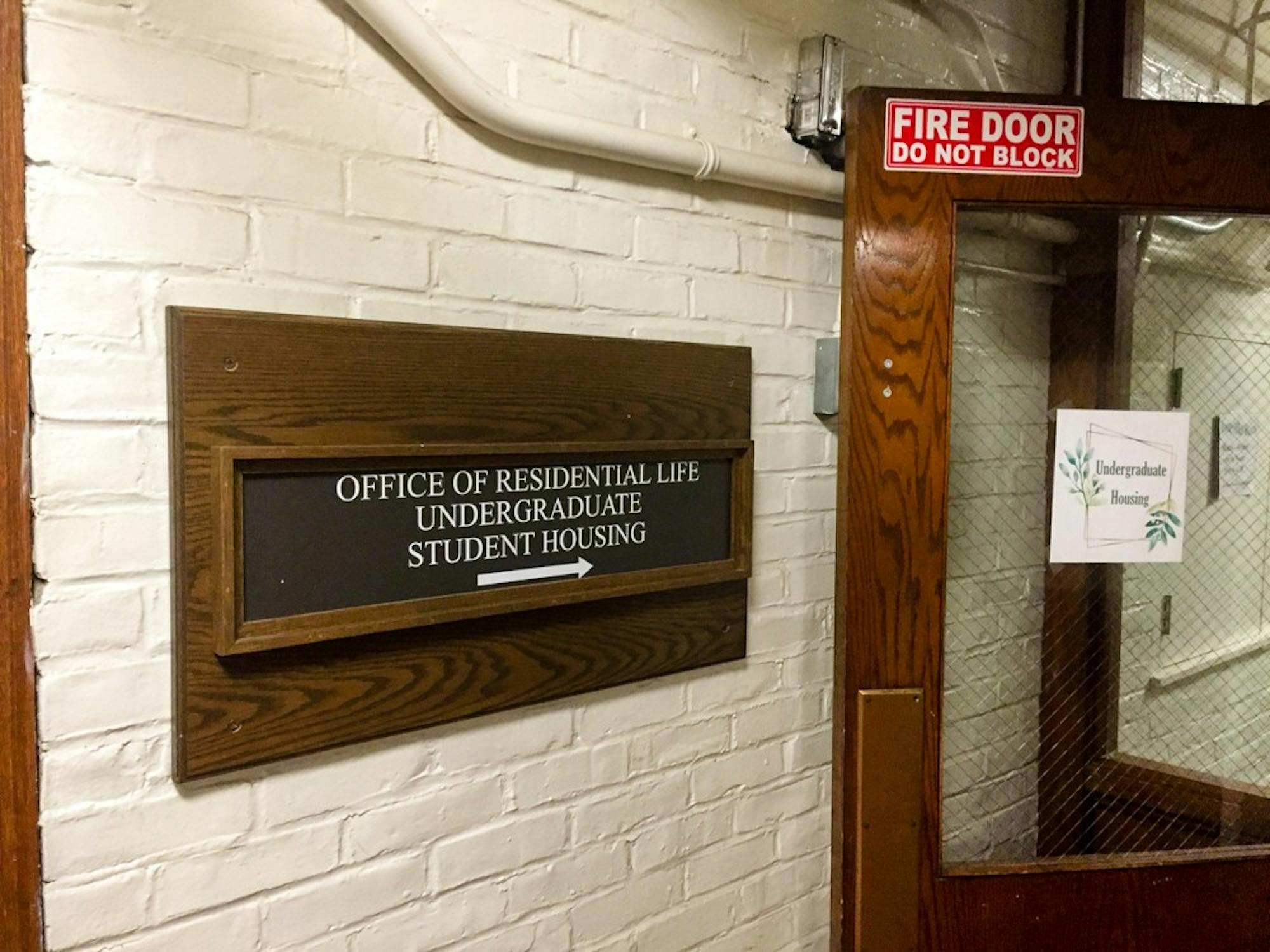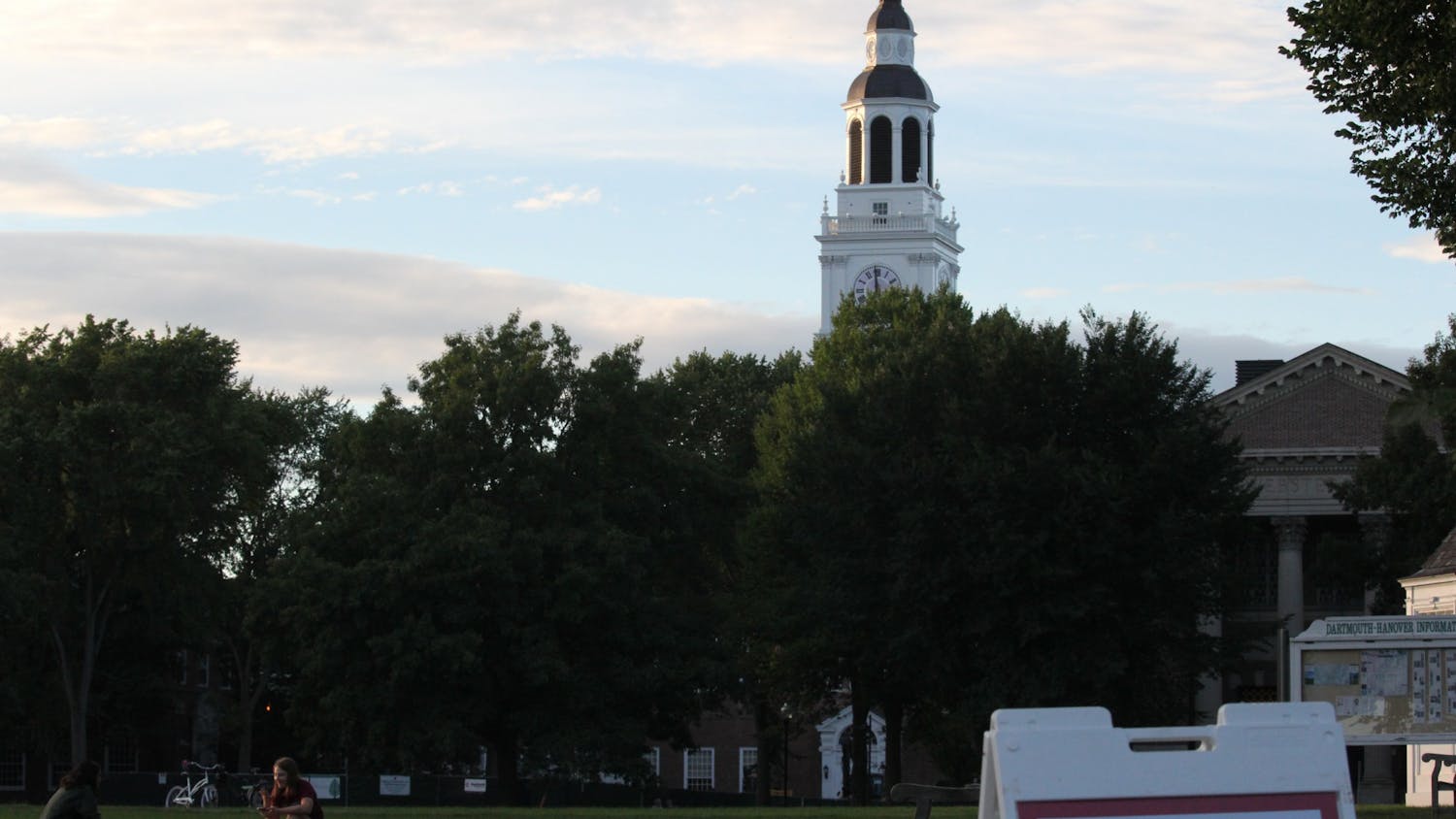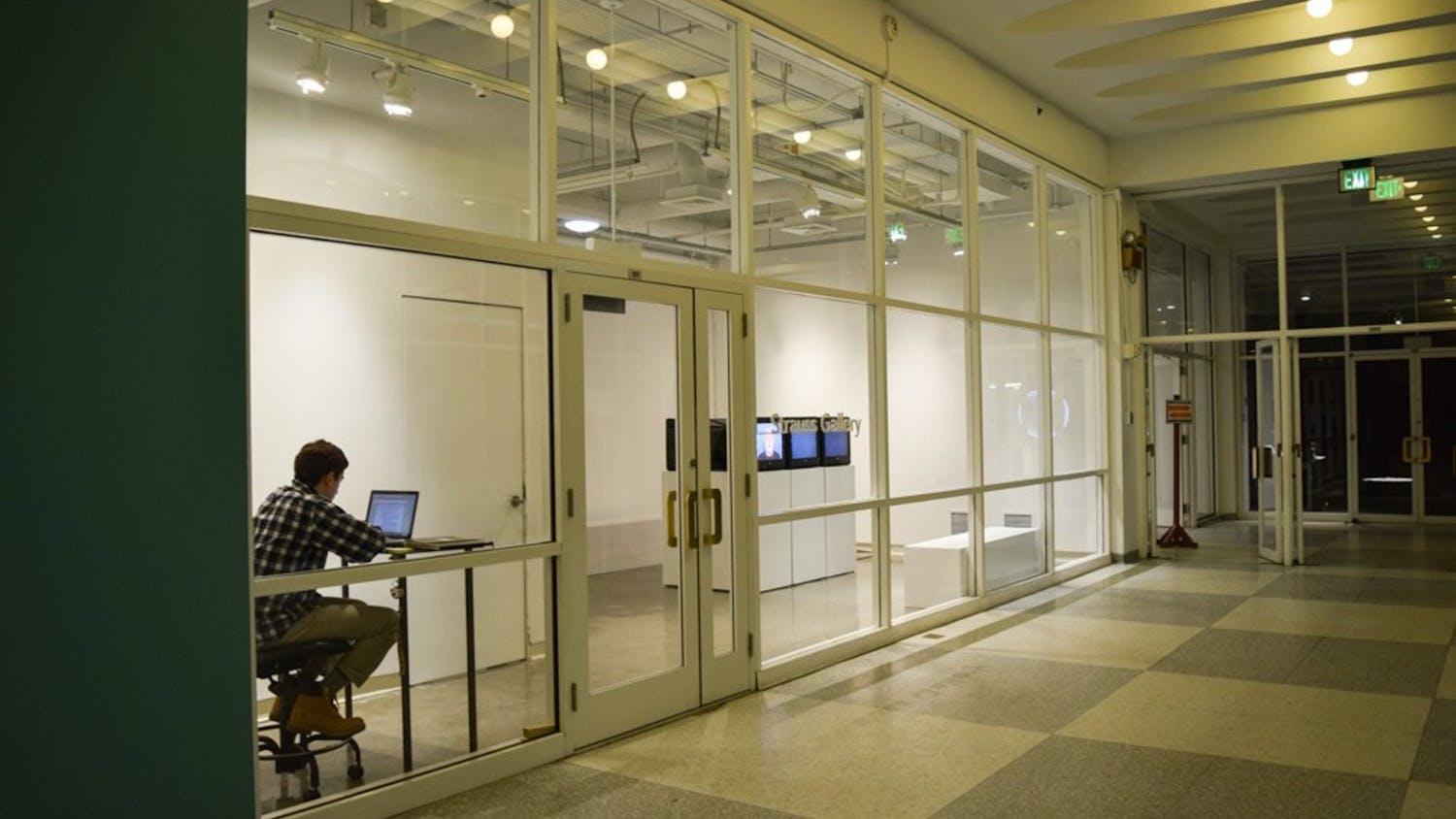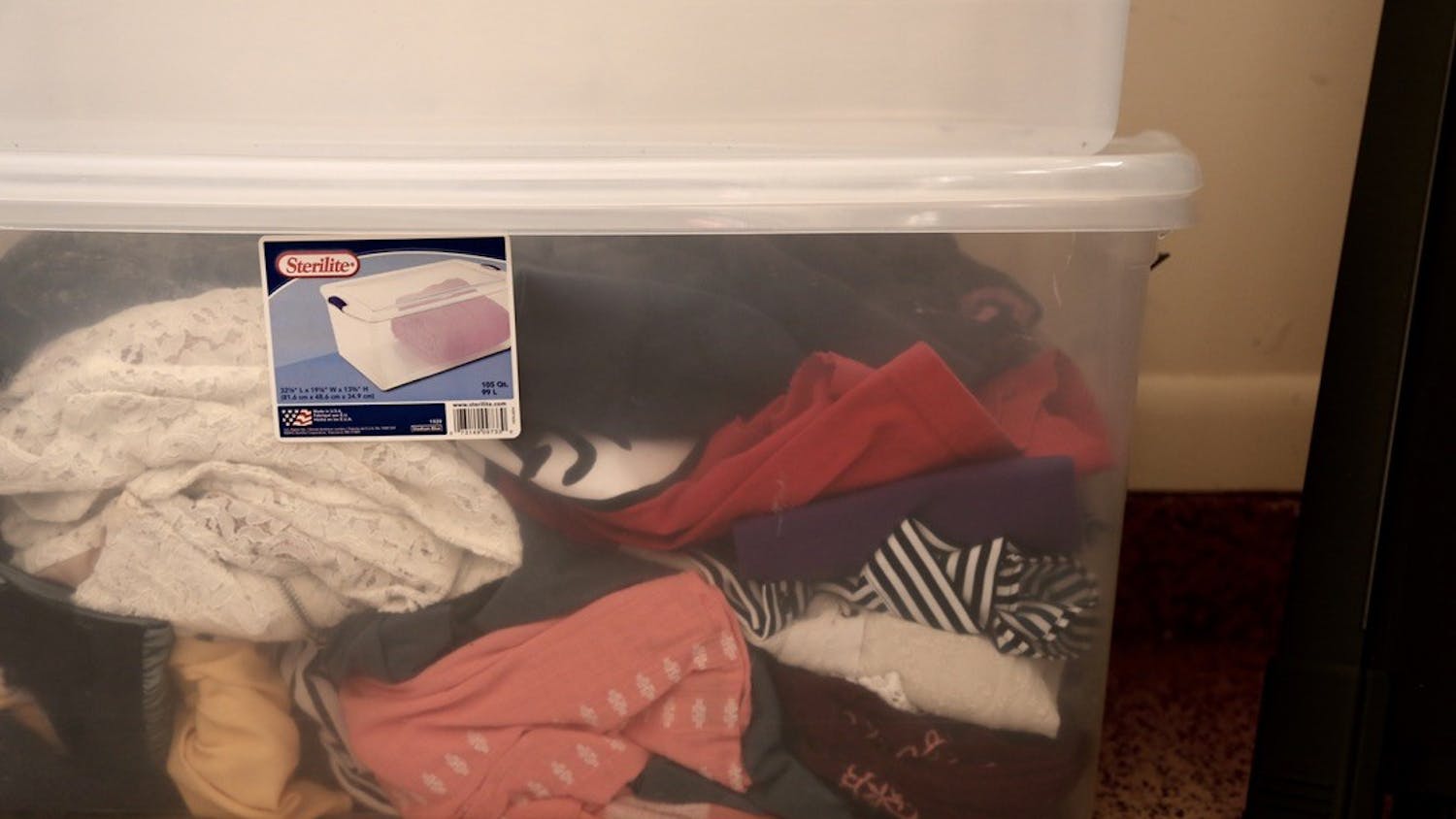As the fall term begins, many students living both on and off campus have struggled to access belongings left in College storage. As they wait, some have been left without essential items like bedding and school supplies.
Students will be able to pick up their items from storage in staggered periods throughout the fall, extending as late as November. The potentially months-long delay between some students’ arrival in the Upper Valley and their ability to access their belongings comes after a long packing and shipping process, which resulted in some students receiving incorrect or badly damaged items and others not receiving their belongings until late August.
In addition to a potential delay, students have expressed confusion surrounding how much can be carried out of storage.
On Sept. 1, Dean of the College Kathryn Lively announced in an email to students that when picking up their belongings, “multiple trips [to the storage area] will not be permitted” and that “students will only be permitted to take what they can carry in one trip back to their room.”
Claire Mitchell ’23, who will be enrolled in classes and living off campus this term, said that she was unsure whether one trip meant a single trip into the building or a single trip from home to the facility.
She pointed out that if the second were true, those without a car are disadvantaged.
“I’m not sure what we’re supposed to do for the storage if you don’t have a car,” Mitchell said. “… Luckily [my housemate] has a car, but if he didn’t, I have no idea what I would do. Probably I wouldn’t take anything.”
When asked to clarify the College’s policies, College spokesperson Diana Lawrence reiterated a Sept. 7 message from Lively to on-campus students, in which she wrote that students whose belongings are being stored in an off-campus facility will be driven in a transport van to the facility and given 50 minutes to find their items. Students whose belongings are being stored in one of 51 controlled storage locations will walk to where their belongings are stored and be limited to only the two to three boxes that will fit on a hand cart.
Mitchell’s bedding and towels, as well as her printer, have been in controlled storage since March. Though she has been in New Hampshire for less than two weeks, the logistical difficulties posed by her missing items have left her “confused and tired.”
“I don’t want to buy duplicates because I know once I do get into storage, I won’t have enough space for everything and I’ve wasted money,” she said. “I’m just trying to make it a month without needing anything.”
Students who are living off campus and are enrolled in classes, like Mitchell, will be able to schedule appointments between Sept. 25 and Oct. 11 to pick up their belongings, while students living on campus will be able to schedule an appointment sooner — between Sept. 14 and Sept. 25. Students living locally off campus who are not enrolled in classes may schedule appointments between Oct. 12 and Nov. 6.
Mitchell said that she does not know where her things are being stored — an issue raised by multiple students with belongings still in storage. Ordinarily, students would be able to put their belongings in storage themselves and know where exactly those belongings were located.
Max Mickenberg ’21, who is also living off campus while enrolled in classes for the fall, said that the College has not notified him about the location of his belongings.
“They haven’t told me where my stuff is,” he said. “I’ve heard about things being sent to the wrong people and things like that … I wish I at least knew that the stuff was safe somewhere.”
Mickenberg said that while he is fortunate to be staying in a house that already has bedding, he is “frustrated” to be missing school supplies and weather-appropriate clothing.
“The stuff that I did get [shipped from Dartmouth], I think 80 percent was winter clothing and my snowboard gear, which is the last thing I needed for this term and south Florida summer,” he said.
The late announcement of the storage regulations forced some students to dramatically change their plans for the term.
Ana Marquez Pereda ’23 had planned to be on campus for the fall, but decided to stay at home once she learned about the pickup regulations, namely the potential two-week delay between arrival on campus and when she would be able to pick up her things.
“I live far away, so I have to come by plane — I don’t have the space to pack my pillow or things like that,” she said.
Marquez Pereda added that although not having all her belongings wasn’t “that bad” on its own, additional factors involved in the two-week quarantine such as a lack of choice in food delivered created a “really stressful environment.”
“I knew it was going to be a lot for me, but it was the storage decision that really pushed me over the edge,” she said.
Hannah Cherenfant ’20, who is finishing her last term on campus this fall, left most of her “room-specific needs,” including her refrigerator and fan, in storage when she left Hanover in March.
Cherenfant had initially planned to bring “a whole list of things,” including food to supplement College-provided meals, to campus due to concerns that Dartmouth’s isolation meals would look like the low-quality meals from other schools she had seen online. She had to change her plans when she learned that she would not have access to her refrigerator upon arrival.
“Ninety-five percent of the food I’d want to bring up from home is perishable,” she said. “I’ve basically resigned myself to whatever food Dartmouth feeds me.”
In addition to mandating one trip to storage, Lively’s message also noted that there will be “no additional on-campus storage at the end of fall term” because “students should only bring what they can carry themselves in the event of an evacuation.”
As result, some students said they were confused regarding items currently in storage — whether "no additional storage" means no additional items or whether it means that items will need to be cleared out entirely.
“With bigger things, I wasn’t planning to get them until I’m back on campus for the summer,” Marquez Pereda said. “I don’t want to bring them back on the plane.”
Lawrence wrote that students living on campus “should be planning to take their things with them when they leave campus by Nov. 17.” She also wrote that students who are not living locally and not enrolled in classes “will receive more information this month about access options in October and early November.”
The Office of Residential Operations declined a request for comment. At press time, the Office of Residential Life had not responded to multiple requests for comment.

Lauren ('23) is news executive editor for The Dartmouth. She is from Bethesda, Maryland, and plans to major in government and minor in public policy.




